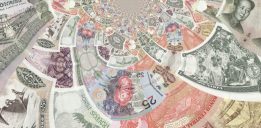Trump and High Dollar Threaten Emerging Markets’ Debt
Emerging markets are the soft underbelly of the global economy. Many analysts expect the election of Donald Trump to the White House will change the United States’ economic and monetary policies. This could worsen conditions for businesses in emerging markets that are financed in U.S. dollars. The result might be a global economic collapse in 2017.
This has been a common refrain. Emerging markets were supposed to crash this time last year. But, last year, the prospects for a significant U.S. Federal Reserve interest rate hike were low, given the fears of economic collapse. This year, a rate hike—or even multiple rate hikes—seems inevitable.
A higher rate would raise the risk of a debt crisis in emerging countries. Or, at the very least, their businesses could suffer. Then there’s also the likely change of U.S. economic policy, following Trump’s election to the presidency.
European fund managers and chief investment officers have dropped emerging market debt holdings to 12.8% from 14.5%, which suggests that financial observers are taking the threat of economic collapse in 2017 seriously. (Source: “European funds slash emerging markets after Trump win,” Reuters, November 30, 2016.)
In 2015, the trigger for a debt bubble burst came from China. The Chinese economy was slowing down, reflected by lower gross domestic product (GDP) statistics. Meanwhile, the Shanghai and Shenzhen stock markets kept crashing. Analysts fear repercussions in all emerging countries. Now the threat has more bite since Trump’s likely high-dollar economy implies that the Federal Reserve will move away from quantitative easing.
Investors should not ignore the present debt risk for emerging markets. The alarmism of 2015-2016 may have been exaggerated. However, fears didn’t materialize because the Fed raised interest rates once, and only by a quarter of a point.
The fate of companies from emerging countries is, in fact, tied hand-in-glove with the performance of the U.S. dollar and the rate of U.S. securities. The possible inflationary pressures from Trump’s proposed economic policies and the certain interest rate increase should push the dollar.
This would make it harder for companies in emerging markets to repay foreign currency bonds. These make up a significant portion of emerging markets’ debt. The rise in U.S. government bond rates would push investors towards the latter, rather than riskier emerging market bonds.
Fears are justified. Emerging countries are based on a very fragile balance and are largely dependent on the economic policies of developed countries. Multiple crises in emerging countries can have significant effects, not the least of which is lowering global growth.






